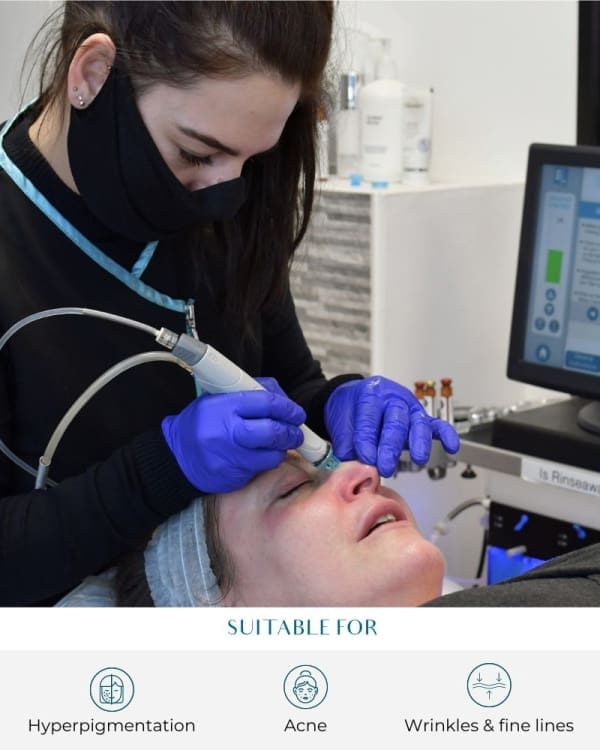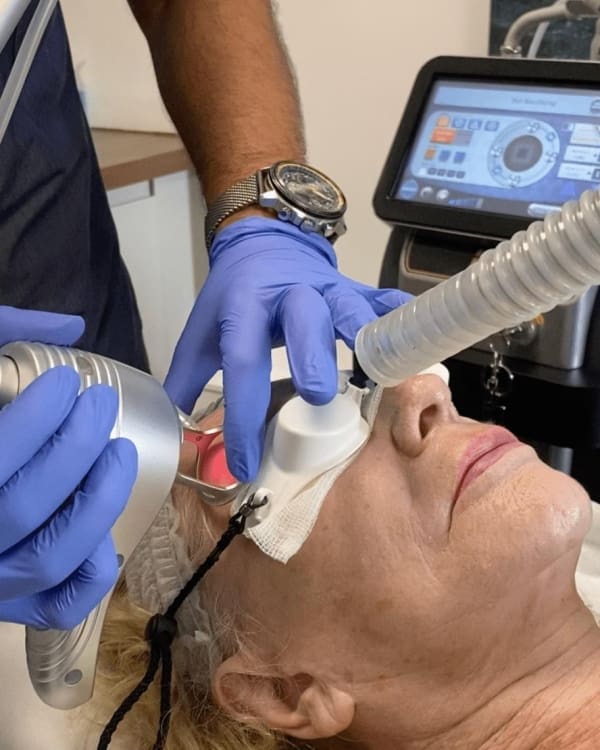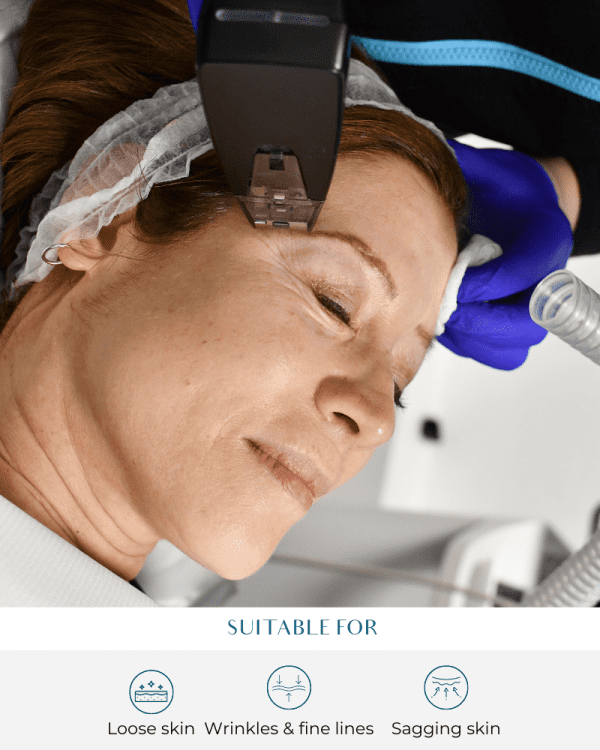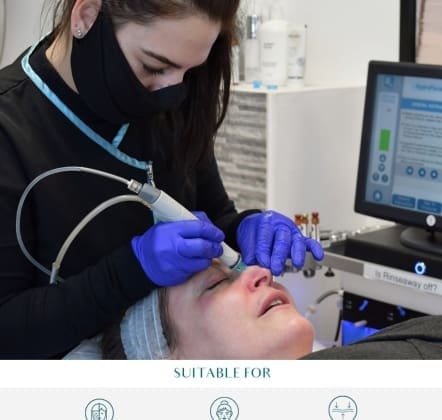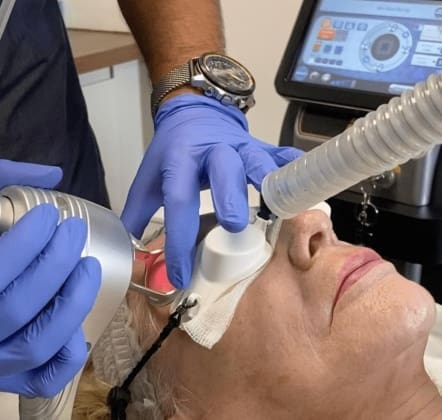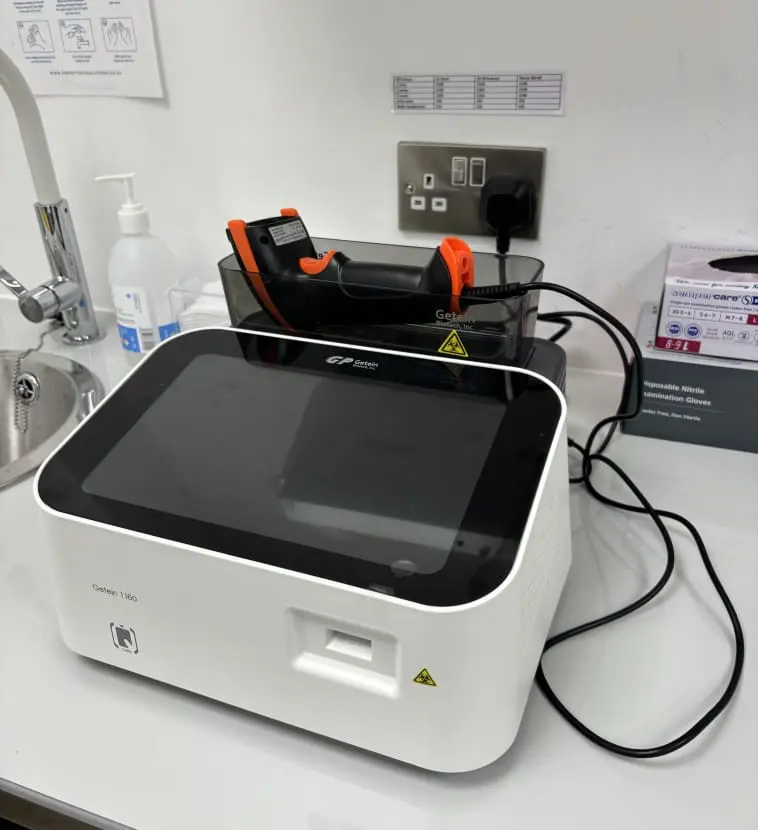
body Treatment
HbA1c Diabetes Blood Test
Did you know that diabetes affects millions of people worldwide, and early detection can significantly improve outcomes? A diabetes blood test is an essential tool to monitor your blood sugar levels and assess your risk of developing or managing diabetes. Blood is drawn for various glucose tests, including glucose screening, glucose tolerance tests, and A1C tests. It is crucial to regularly check your blood sugar levels to manage diabetes effectively. At Perfect Skin Solutions, we offer a comprehensive range of blood tests, including diabetes testing.
Introduction to Diabetes
Diabetes is a chronic condition that affects the way your body processes blood sugar, also known as glucose. Managing diabetes can be difficult and overwhelming at times. High levels of glucose in the blood can lead to severe health problems if not managed properly. This condition is caused by either the body’s inability to produce enough insulin or its inability to use insulin effectively. Managing diabetes often involves lifestyle changes, such as a balanced diet and regular exercise, along with medication. Continuous glucose monitoring is a valuable tool that helps track blood sugar levels, allowing for informed decisions about treatment. Understanding the basics of diabetes, including its types, risk factors, and symptoms, is crucial for effective management and prevention of complications.
What is a Diabetes Blood Test?
A diabetes blood test measures your blood sugar levels and is used to diagnose diabetes or prediabetes. These tests are called glucose screening, glucose tolerance tests, and A1C tests. Blood is drawn during these tests to measure glucose levels accurately. It helps identify how well your body regulates glucose, which is crucial for energy production and overall health. The test is used to detect conditions like type 1 and type 2 diabetes, gestational diabetes, or prediabetes. By understanding your blood sugar levels, you can take proactive steps to manage or prevent diabetes effectively.
Indications
A diabetes blood test is often recommended for individuals experiencing:
- Increased thirst and frequent urination
- Unexplained weight loss or gain
- Fatigue or low energy levels
- Blurred vision
- Slow-healing wounds or frequent infections
- Risk factors such as a family history of diabetes, obesity, sedentary lifestyle, or belonging to an at-risk ethnic group, which can contribute to a higher risk of developing diabetes
Doctors decide to recommend a diabetes blood test based on these symptoms to ensure accurate diagnosis and appropriate management.
High blood sugar levels can occur due to various factors, including dietary choices and medication adherence.
Risk Factors and Symptoms
Several risk factors can increase your chances of developing diabetes. These include a family history of the condition, being overweight or obese, and having a history of high blood pressure or high cholesterol. Common symptoms of diabetes may include feeling tired, frequent urination, and slow healing of cuts and wounds. However, not everyone with diabetes will experience these symptoms, making it essential to get tested if you’re at high risk. A fasting blood sugar test can help confirm whether you have diabetes or prediabetes. Recognizing these risk factors and symptoms early can lead to timely intervention and better management of the condition. Individuals at risk for gestational diabetes may have type 1 or type 2 diabetes based on their symptoms and test results, emphasizing the importance of proper testing to determine the correct diagnosis.
Diagnosis
Diagnosing diabetes typically involves a combination of physical examinations, medical history, and laboratory tests. One of the primary methods used to diagnose diabetes is through blood tests, which measure the levels of glucose in the blood. The most common blood tests used for diagnosis are the fasting blood sugar test, the oral glucose tolerance test, and the hemoglobin A1C test. These tests can help determine if an individual has normal blood sugar levels, prediabetes, or diabetes. It’s essential to work with a healthcare provider to determine the best course of testing and to interpret the results accurately.
Types of Diabetes
There are several types of diabetes, each with different causes and characteristics. Type 1 diabetes is an autoimmune condition where the immune system attacks the pancreas, leading to little or no insulin production. Type 2 diabetes, the most common form, is caused by insulin resistance, where the body’s cells don’t respond to insulin properly. Gestational diabetes occurs during pregnancy and usually resolves after delivery, but it can increase the risk of developing type 2 diabetes later in life. Managing blood sugar levels during pregnancy is crucial to ensure the health of the baby. Understanding these types and their causes is essential for diagnosis and management.
Benefits
- Early Detection: Identifies prediabetes or diabetes early for timely intervention, reducing the potential risk of developing type 2 diabetes in the future. Diabetes testing is a quick process that can provide timely results, encouraging individuals to get screened even in the absence of symptoms.
- Blood Sugar Management: Helps monitor blood glucose levels to stay within the target range. Careful blood sugar testing is essential to ensure levels remain within target ranges.
- Prevention of Complications: Reduces the risk of long-term complications like cardiovascular disease, kidney disease, and nerve damage.
- Tailored Care: Guides personalised treatment plans, including dietary changes, exercise routines, and medication adjustments.
- Improved Quality of Life: Empowers individuals to make informed decisions about their health.
What is Tested?
The test typically measures the following:
- HbA1c (Hemoglobin A1c): Provides an average blood sugar level over the past 2-3 months. Precise measurement of HbA1c is crucial for monitoring diabetes and assessing long-term blood sugar control. Glucose measurements are often reported in milligrams per deciliter (mg/dL) to help patients relate their A1C results to daily glucose monitoring levels.
These tests give a comprehensive picture of your blood sugar control and help diagnose or monitor diabetes effectively.
Continuous Glucose Monitoring
Continuous glucose monitoring (CGM) is a system that uses a small sensor to track blood sugar levels throughout the day. This technology helps identify trends and patterns in your blood sugar levels, making it easier to manage your condition. The sensor is typically inserted under the skin and can be worn for up to 7 days or longer. CGM provides real-time data, allowing for timely adjustments to diet, exercise, and medication. By using CGM, you can gain better control over your diabetes and reduce the risk of complications.
Blood Glucose Management
Managing blood glucose levels is crucial for individuals with diabetes. This can be achieved through a combination of lifestyle changes and medical interventions. Lifestyle modifications include maintaining a healthy diet, engaging in regular physical activity, and monitoring blood sugar levels regularly using a continuous glucose monitor or traditional blood glucose meters. It’s also important to be mindful of the timing and size of meals to prevent spikes in blood sugar levels. For some individuals, medication or insulin therapy may be necessary to help manage blood glucose levels. Regular check-ups with a healthcare provider can help individuals with diabetes stay on track and make adjustments to their management plan as needed.
What Happens During the Test?
- Preparing for Your Appointment: No special preparation is needed for the HbA1c test.
- Sample Collection: A small blood sample is collected via finger prick or venipuncture by a trained phlebotomist in a sterile environment.
- Sample Analysis: The sample is analysed using advanced diagnostic equipment to ensure accurate results.
- Results Delivery: Your test results are securely emailed to you within 5 minutes of your appointment.
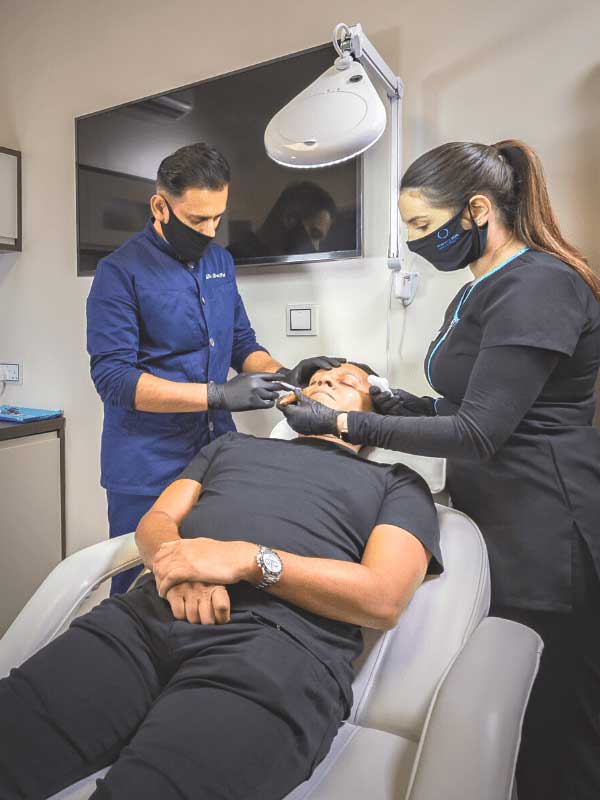

Why choose Perfect Skin Solutions for your HbA1c Diabetes Blood Test?
Preparing for Your Appointment
HbA1c testing does not require fasting and can be done at any time of the day, making it a convenient option for regular monitoring.
Why Choose Perfect Skin Solutions for Your Diabetes Blood Test?
At Perfect Skin Solutions, we are a clinic that prioritises accuracy and patient care. Our experienced team uses state-of-the-art technology to deliver reliable results quickly and efficiently. You can share your results with your GP for further guidance on managing your health.
Why Routine Testing?
Routine diabetes testing provides valuable insights into your health and helps you take control of your well-being. Regular monitoring allows you to:
- Detect early signs of prediabetes or diabetes and watch for symptoms related to blood sugar levels
- Manage existing conditions effectively
- Prevent complications associated with uncontrolled blood sugar levels
Regularly monitoring HbA1c levels is crucial for early detection and prevention of serious diabetes-related issues like neuropathy, retinopathy, and heart disease.
Studies have shown the benefits of regular monitoring in managing diabetes.
Who Should Test?
Diabetes testing is particularly important for individuals who:
- Have a family history of diabetes
- Are overweight or lead a sedentary lifestyle
- Are over 45 years old
- Belong to an at-risk ethnic group
- Are pregnant (to screen for gestational diabetes)
- Are children with certain risk factors such as ethnicity, weight, activity level, and family history
Additionally, women should be aware that hormonal changes can influence their blood sugar levels, and tailored lifestyle recommendations are crucial for effective management.
After the Test
We are a diagnostic service that provides results quickly and securely via email within 5 minutes of your appointment. If you have been diagnosed with diabetes, we recommend discussing your results with your GP for further advice and management. Careful management and follow-up with your GP is crucial to prevent complications and ensure effective treatment. Take charge of your health today with our Diabetes Blood Test at Perfect Skin Solutions. Early detection can make all the difference in preventing complications and maintaining a healthy lifestyle! Book your appointment now!
Get in contact





































